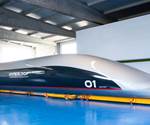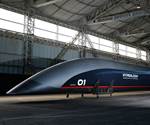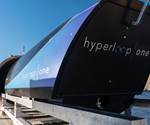Virgin Hyperloop One presents technology to U.S. Congress
Virgin Hyperloop One working to grow roster of state and federal partners who support certification and regulatory investment in hyperloop.
Virgin Hyperloop One (VHO, Los Angeles,Calif.) visited Capitol Hill in Washington D.C. on June 26 to present its technology to members of Congress and federal stakeholders at its event “Hyperloop On The Hill,” as the company continues to broaden support of its new transportation technology.
Building off of the momentum of U.S. Secretary of Transportation Elaine Chao’s newly-formed Non-Traditional and Emerging Transportation Technology (NETT) Council to support new and innovative transportation projects like hyperloops and self-driving cars, Virgin Hyperloop One’s “Hyperloop on the Hill” event offered an inside look at current U.S. developments, including in Ohio, Missouri, Nevada and Texas, and provided a progress update.
- In Texas, the Dallas-Fort Worth Regional Transportation Council has launched a hyperloop feasibility study of a Fort Worth to Laredo route and an environmental impact study along a Dallas to Fort Worth corridor.
- In the Midwest, the Mid-Ohio Regional Planning Commission is conducting a feasibility study of hyperloop technology along a Chicago-Columbus-Pittsburgh corridor, followed by components of an environmental impact statement along the same route.
- In Missouri, the Missouri Hyperloop Coalition has released results from the first hyperloop feasibility study in the U.S. which confirmed the viability of a St. Louis to Kansas City route.
- In Nevada, DevLoop, Nevada’s hyperloop test site, continues as an active test site.
The vision of the NETT Council is to develop and establish department-wide processes, solutions, and best practices to identify and manage non-traditional and emerging transportation technologies and projects, to provide assistance to local and state governments, and to conduct research to better understand the safety and regulatory needs of these technologies. In May, House Transportation and Infrastructure Chairman Peter DeFazio (D-OR) toured VHO’s full-scale test track outside of Las Vegas.
“We are seeing growing interest and excitement in the hyperloop vision from across the United States at both local and federal level,” says Sir Richard Branson, founder of the Virgin Group. “I believe we could see a hyperloop in the U.S. in years, not decades.”
“We are now seeing the groundswell of support that’s needed to realize the hyperloop revolution with the formation of the NETT Council and support from lawmakers across the country,” adds Jay Walder, CEO of Virgin Hyperloop One. “As hyperloop moves toward reality it’s becoming clear that it will not only transform how we travel but also create an entirely new industry with thousands of new jobs for Americans.”
This summer, Virgin Hyperloop One will be travelling across the U.S. to showcase its XP-1 vehicle, connect with communities, and educate local and state governments on the benefits of hyperloop. In the coming months, Virgin Hyperloop One will make stops in Missouri, Texas and Ohio to showcase its technology and demonstrate how hyperloop can help advance America’s transportation technology capabilities.
Related Content
-
ASCEND program update: Designing next-gen, high-rate auto and aerospace composites
GKN Aerospace, McLaren Automotive and U.K.-based partners share goals and progress aiming at high-rate, Industry 4.0-enabled, sustainable materials and processes.
-
Carbon fiber, bionic design achieve peak performance in race-ready production vehicle
Porsche worked with Action Composites to design and manufacture an innovative carbon fiber safety cage option to lightweight one of its series race vehicles, built in a one-shot compression molding process.
-
SMC composites progress BinC solar electric vehicles
In an interview with one of Aptera’s co-founders, CW sheds light on the inspiration behind the crowd-funded solar electric vehicle, its body in carbon (BinC) and how composite materials are playing a role in its design.
















